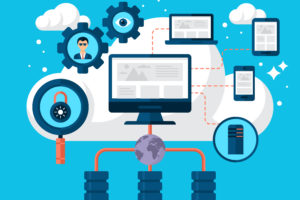Do you agree with the “going green” movement?
Whether you’re a tree-hugging hippie or too busy to care, more and more businesses are adopting policies that support a healthy environment. Some of these policies include lowering their business’ carbon footprint, donating to environmental groups, or running more leanly.
Recently, another trend in the “going green” movement has emerged — and while it hasn’t reached widespread adoption yet, it’s saving businesses a lot of money and preventing additional pollution.
Welcome to circular technology.
What does “circular” mean?
Currently, we have a linear economy. We make, use, then dispose of products.
A circular economy aims to change that cycle. Put simply, circular economies encourage consumers to maximize their use of their products. Then, instead of disposing of the product at the end of its lifecycle, efforts are made to refurbish, repair, replenish, or upgrade the products.
Circular economies first made a splash in the clothing industry. The clothing and textile industry has recently come under fire for its role in polluting water, contributing to landfill mass, and encouraging consumers to dispose of clothing because trends change so quickly.
Instead of “make, use, and dispose,” a circular clothing economy encourages people to repair their clothes and wear them longer.
The same idea can be applied to technology. It’s expensive to dispose of technology properly — emphasizing replacement and upgrades over purchasing new tech keeps the environment cleaner.
Benefits for Businesses
Some environmental movements are at odds with good business practices. Those movements impede business growth or cost more money.
Luckily, circular technology can benefit both your business and nature.
Save money. Often, refurbishing, repairing, or upgrading hardware is cheaper than purchasing the latest, greatest model. Similarly, purchasing officially-refurbished products are cheaper than buying one out of a box. It’s important to have experienced IT people help with the procurement process, however.
Extend product life. Does it feel like you have to upgrade your hardware every time you turn around? It’s possible that repairing or refurbishing your products can make them last longer. While maintenance has its own cost, extending a product’s life can lead to lower expenditures — and less training-time for employees.
Lower environmental impact. As the world changes, consumers are more aware of the impact they have on the world. They feel more confident purchasing from manufacturers that are environmentally conscious. When you embrace circular technology, you send the message that you care about the environment.
Step into the future with Vodigy! Vodigy supports small and medium-sized businesses in finding the best technology solutions. Contact us today!




